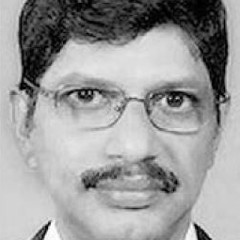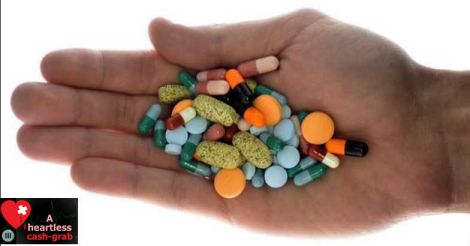Gilead, a US drug company, recently introduced Sovaldi, a medicine to treat Hepatitis C, with a price tag of 1,000 dollars for one pill. The price of many new medicines is like this. Treatment is not a luxury needed only for the rich. Crores of people turn poor because of the burden of treatment costs. The reason for the high price of new medicines is that introducing a new medicine into the market involves huge costs.
Companies have the right to charge high price until a patent expires. However, there is a trend of extending the validity of the patent by making minor alterations in the structure of the medicine and renaming it just before the patent expires. Some companies mix different medicines unscientifically and sell them under new names. This technique is used to overcome price controls.
Efforts are underway using in-silico techniques like chemoinformatics and other technology like nanoscience and 3D printing to save time and cost of research. It could be possible to reduce the number and quantity of medicine through precise medicine.
Like open-source software, efforts to lower the price of medicine by reducing the cost of research through communities like open pharma are also underway. Authorities are also continuing measures to prevent loot in medicines. Lives of today’s patients will not last until these measures yield results. The efforts of central and state governments are to provide good medicines at fair price by averting the huge cost of sales and profit margin.
Medicines are generally made through batch processing. Lakhs of tablets will be there in a batch. As per the order given by the marketing department, some of them will be given a fair price and packed under a generic name. The remaining will be packed under brand names with a huge price tag. One medicine can have three names. For example, paracetamol is a generic name. It is sold in stores under a brand name, Calpol, at a higher price. Its real chemical name is acetaminophen.
Here, the difference is only in name, packing and price. The material is the same. They have the same chemical structure and they are made in the same batch in the same plant and inspected. It is like selling some rice from one bag without any fancy name at a low rate and selling the remaining as premium rice under a different name in colour packets at an exorbitant price by giving a lot of advertisement.
To provide low-cost generic medicines to the public, the Union government had opened pharmacies called Jan Aushadhis in 2008. More than 100 pharmacies were opened in states like Rajasthan, Punjab and Jharkhand. These pharmacies sell more than 400 medicines. But, not even a single pharmacy could be opened in Kerala at that time. The government aims to increase the number of pharmacies to 3,000 and the number of medicines to 1,000. Products such as syringes and cotton could also be sold through these pharmacies. The average market price of Tramadol, a medicine, is 13 times its price at Jan Aushadhis, and in the case of atorvastatin, another medicine, it is nine times.
Jan Aushadhi pharmacies are run by a society called the Bureau of Pharma Public Undertakings of India (BPPI), which operates under the central pharmaceuticals division. It was started by five drug companies, including Hindustan Antibiotics, a public sector undertaking. Quality drugs made by these government companies are available at Jan Aushadhi pharmacies. The medicines that they do not produce are bought from private companies. The medicines are stored at a central depot in Gurgaon after testing at the company and in a laboratory elsewhere. Medicines are distributed from there to pharmacies in different parts of the country.
Government hospitals and medical colleges will get priority to start Jan Aushadhi pharmacies. Voluntary organisations like Red Cross and private individuals too can start these pharmacies. Financial assistance up to Rs 2.5 lakh and incentives for a limited period will be given in the beginning. Necessary information for those who wish to start these pharmacies is available at janaushadhi.gov.in and pharmaceuticals.gov.in. If such projects are encouraged as much as possible, more people will benefit from them.
(The writer is the managing director of Hindustan Antibiotics Limited in Pune and member of BPPI governing council. These are his personal opinions)


























Disclaimer
The comments posted here/below/in the given space are not on behalf of Manorama. The person posting the comment will be in sole ownership of its responsibility. According to the central government's IT rules, obscene or offensive statement made against a person, religion, community or nation is a punishable offense, and legal action would be taken against people who indulge in such activities.